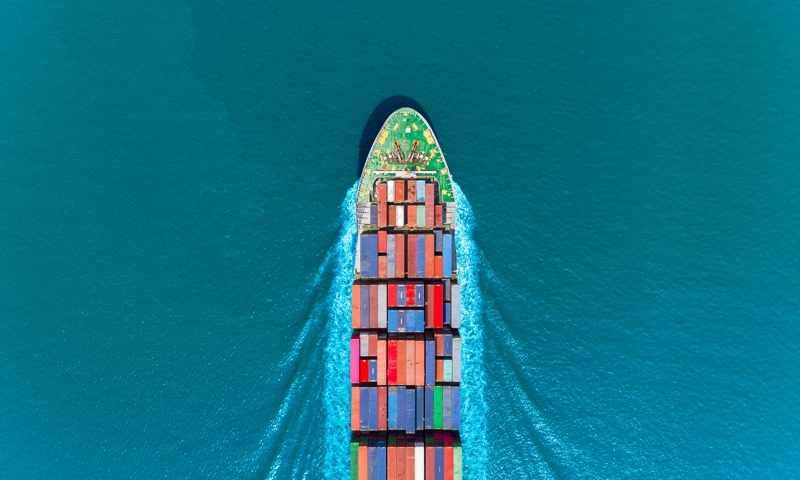In recent times, the word ‘tariff’ has jumped from the back pages of economic textbooks to front-page headlines. Tariffs were once the exclusive domain of industry insiders and trade negotiators, but now they are part of a wider political conversation that influences everything from stock exchanges to airfares.
In this article, we look at how tariffs, especially when used in unpredictable and strategic ways, are affecting global perceptions and putting pressure on hospitality-related industries that depend on openness and a friendly ‘welcome’.
What Is A Tariff?
A tariff It is a tax imposed on goods imported from another country. This tax increases the price of these goods, making them less appealing to purchase and giving local producers an edge in competition.
In practice, consumers are often the ones who pay the price. This results in a reduction of purchasing power.
Even a modest price increase can influence consumer decisions and change the dynamics of markets in industries as diverse as food, electronics and tourism.
Tariffs send more than price signals, they also send important messages. Tariffs were used all through history (from 1930s U.S. Tariff Act and recent trade tensions with China, the U.S.
Game Theory View on Strategic Use of Trade Tools
Tariffs often serve as strategic tools, not only as economic instruments but also as negotiation tactics.
In order to promote industrial policies, it is better to provide subsidies for the development of domestic industry (a more healthy approach as economists believe). Paul Krugman argueSome countries use tariffs as a way to force foreign producers to lower prices or make concessions.
This strategy fits perfectly into the logic behind ‘game theory’. Imagine two people playing the game Chicken. The first player to swerve will lose, but both players crash if they don’t.
Each country in the world of commerce threatens to impose tariffs, hoping that the other will blink first. Credibility and sending a strong message are key. But miscalculations could lead to mutual economic harm.
Tariffs Markets and Uncertainty Cost
Expectations are the lifeblood of financial markets, which collapse in their absence. Trump’s announcement of tariffs early in 2025, especially the 10% baseline duty on strategic imports and the targeted surcharges, caused markets to go into chaos not just because of their policies, but due to the uncertainty surrounding them.
The S&P 500 fell nearly 19% from its February 2025 highs. A brief 90-day suspension triggered a rebound—the S&P up 9.5%, the Nasdaq soaring over 12%—but exclusion of China and further escalations reignited volatility (Reuters, April 2025).
The currency markets followed suit. The U.S. currency, usually considered a safe haven in times of crisis, fell. On paper, tariffs would support the dollar by inflating it. In reality, the Federal Reserve’s refusal to increase rates and the deterioration of global confidence eroded dollar support.
Research from the Yale Budget Lab Notes the contradiction between inflationary forces and dovish policy. Similarly, Stanford GSB Analysts warned that unpredictability and tariffs could threaten the long-term status of the dollar as a reserve currency.
It has real implications. A weaker dollar limits Americans’ ability travel abroad. Foreign tourists, in particular from Europe, still hesitate to visit the U.S. even though exchange rates are favorable.
Richard Branson’s founder, Virgin, said in a recent Financial Times article, “Tourism, like welcome, is a business.” Tariffs do not target individuals directly, but they can have a powerful deterrent effect.
Strain on Travel and Hospitality
Tariffs have a material impact on the travel and hospitality sectors. This is visible in balance sheets as well as booking trends. Tariffs increase the price of imported materials and goods, which directly affects industries that heavily rely on international supply chains.
Prices for aircraft parts and maintenance equipment have increased. Major carriers have already revised their expectations.
You can, for example, American Airlines Withdrawing its 2025 profit projection, the company cited uncertainty in consumer behaviour and higher costs caused by tariffs for manufacturing inputs. Delta Air Lines The same trend was followed by other analysts, who also pointed to a declining demand and macroeconomic instability.
Hotel chains are not immune. The rising cost of imported electronics, construction materials, and furnishings has caused delays in renovations at mid- and high-tier hotels.
Skift recently published an article stating that tariffs disrupted investment plans across the industry. This led to service issues and maintenance issues.
Demand is softer, particularly among customers who are price sensitive. This dynamic limits flexibility and squeezes margins.
Trade Tensions & Consumer Confidence
Tarife themselves are not as harmful as the uncertainty they cause. Confidence is a fundamental element of industries such as travel and hospitality. Travel for pleasure and business is only possible when people feel confident about the future. Tariff battles that are unpredictable or include threats of escalated tariffs can undermine this confidence.
The edginess of this edginess can be seen in the international travel patterns. Due to the unwelcoming political atmosphere and increasing trade tensions, visits to the U.S. fell by 11.6% from March 2024 to March 2025.The Guardian, April 26, 2025).
Canada, historically the U.S.’s biggest source of foreign tourists, will reduce outbound travel to the U.S. by over 20%. This may result in a loss of $9 billion dollars to U.S. tourism revenue.Politico, May 5, 2025).
The impact of this mental climate goes beyond tourism. Airlines are cutting routes and delaying orders for aircraft. Delta and American Airlines aren’t alone—multiple firms have issued warnings or revised earnings guidance due to “macroeconomic volatility” and “geopolitical risks,” euphemisms that often trace back to trade frictions (Business Insider, April 2025).
The hotels are also not immune from these macroeconomic forces. Recent data from multiple regions confirms that international travel is down and so are hotel performances. According to STRThe U.S. occupancy rate of hotels fell by 2.3 percentages points between March 2025 and the year before, while revenue per room (RevPAR), dropped by more than 4%. Hotels located near the U.S. Canada and U.S. Mexico borders experienced sharper declines. This indicates reduced cross-border travel.
According to the report, tourism boards in urban hubs such as Washington, D.C. are preparing for a 6.5% decline in international visitors by 2025. Axios.
Officials attribute this to economic barriers as well as political sentiment. One tourism analyst said, “There is a feeling that visiting the U.S. at this time is not as welcoming or easy.”
Even in cases where the currency rate favors European travellers, deterrents that go beyond financial incentives are more effective.
Meanwhile, Marriott International In April, the company lowered its revenue forecast for 2025 citing a “weakening of global demand.” Hilton and Hyatt are two other major hotel brands that have recently warned their investors about similar concerns.
Hilton also cut its RevPAR for 2025 in recent times, citing travelers in “wait and see” mode, as Trump’s Tariff policies unfold.
Airbnb also warned about disappointing revenues in the second quarter, which indicates that guests are delaying bookings, a sign of caution over spending (The Times, May 2025).
It is important to note that the word “you” means “you”. Federal Reserve The government has linked the uncertainty of trade policy to reduced consumer confidence and capital investment, reinforcing a narrative that tariffs are having a far-reaching impact on the service sector.
Tariff Challenge
Tariffs are meant to protect national interests but they can often undermine confidence and increase costs. These tariffs send out unfriendly signals that are felt in industries such as hospitality and travel, which depend on openness.
When tariffs are used in an unpredictable or punitive way, they create a climate of feeling closed, whether the borders are technically open.
Richard Branson said that the message is just as important as the policy. Tariffs target goods but they have ripple effects on people, place and perception. In the ‘business of welcome’, that cost can be immeasurable.
Even in times of protectionism, the challenge for travel and hospitality industries is to find alternatives that will reassure global stakeholders while maintaining an openness spirit.

Dr Isabella Blengini, Associate Professor of Economics in EHL. Isabella is on Twitter. LinkedIn.
The original version of this article appeared on EHL Insights.


